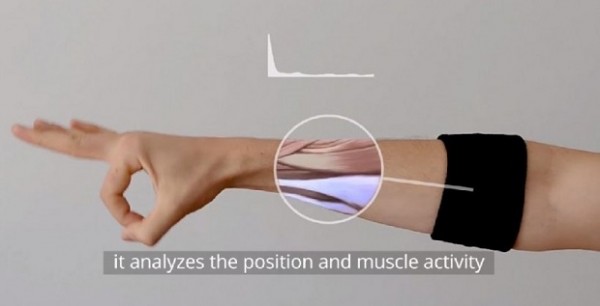
Students at Berghs School of Communication in Stockholm imagined a wristband that could easily fit in Google’s portfolio. Google Gesture is a fictional device that translates gestures into speech, thus giving a voice to the ones who can’t normally talk.
The search giant has created software for the speech-impaired in the past, the app that translates speech into text being a great example. The reason why Google isn’t behind such a concept as the Gesture wristband is because such a device is most probably impossible to make for the time being.
This piece of wearable tech would be accompanied by an Android (what else?!) app, which would also be called Google Gesture. Judging by the position of the hand and the tension of the muscles, the wristband will be able to record sign language and transfer it to the app wirelessly, presumably via Bluetooth 4.0 LE. Once collected by the app, the data is translated into speech, so that other people can understand the gesture.
The idea behind the above video, which was created by marketing students at Berghs School of Communication in Stockholm, is that a lot of interesting conversations never take place simply because not many people know sign language. It’s wrong to believe that just because they cannot talk, the speech-impaired have nothing to say.
According to the students who have imagined it, Google Gesture would be able to turn sign-language into speech in real time. While that’s a bit improbable, it would help conversations to flow naturally.
Getting lost in translation would be impossible with such a device. More than that, Google Gesture could help people to interact, regardless of their country of origin. I think that such a device would be great not only for the deaf, but also for people who interact a lot with other cultures. Seeing how a hand gestures means something in one country and quite the opposite in another one, it would really be something if there was no room left for interpretations. For example, “thumbs up” is the equivalent of a well-done job in most countries, but in Greece and Turkey, this hand gesture symbolizes an insult. Same goes for the “V for victory” sign that’s interpreted differently in various parts of the world.
Be social! Follow Walyou on Facebook and Twitter, and read more related stories about the Hand-Tech glove that shoots video and translates sign-language, and the One2Touch Softpad S1 NFC keyboard.